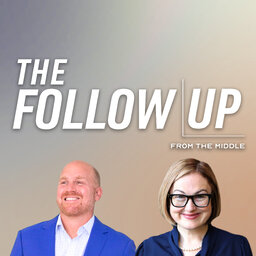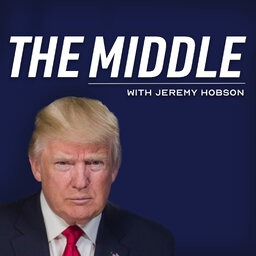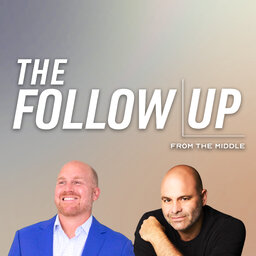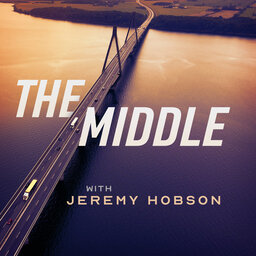The role of Christianity in our politics
On this episode of The Middle we're live from Birmingham, Alabama in the heart of the Bible Belt to ask you: What role should religion play in our politics? We're joined by former Homeland Security official Elizabeth Neumann and Birmingham-based journalist and Vice President of Content for The Gospel Coalition Collin Hansen. The Middle's house DJ Tolliver and his band joins as well, plus questions from our live audience. #religion #christianity #extremism #god #politics #churchandstate
In 1 playlist(s)
The Middle with Jeremy Hobson
The Middle with Jeremy Hobson is a national call-in talk show focused on bringing the voices of Amer…Social links
Follow podcast
Recent clips

The Follow Up: Fear in Trump's First Year, Michigan and the Midterms
22:56

One year of Trump: How are His Policies Affecting You?
49:39

The Follow Up: Minneapolis, Maduro’s Capture, and the First Days of Mamdani
26:52
 The Middle with Jeremy Hobson
The Middle with Jeremy Hobson